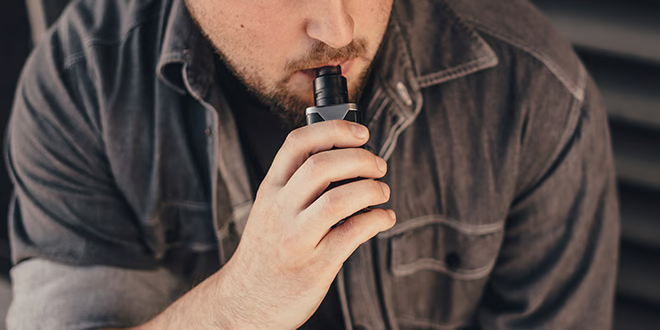
The Tobacco and Vapes Bill is currently winding its way through Parliament, and has major implications for vapers.
While the intention of the bill is to stop under-18s using electronic cigarettes, it could also mean that vaping becomes unpleasant and unattractive for millions of adult vapers.
Unfortunately, most coverage of the bill has focused on the smoking elements. So here I’ll be explaining how it affects vapers - and where there is still a glimmer of hope.
The important things to know
The key points of this bill (for vapers) are that Ministers in Scotland, England, Northern Ireland and Wales are being given the power to ban or regulate the flavours, flavour names and appearance of vape products.
For individual vapers, perhaps the biggest concern is that non-tobacco flavours could be banned in the future.
Vapers know that flavours are important, and research also shows they help people trying to switch from vaping to smoking. However, many politicians think of vaping as a medicine and don’t understand the role flavours play in helping people to get off and stay off cigarettes.
That’s likely compounded by the fact that, in the recent vaping consultation, the government didn’t even read all the consultation responses, instead using an AI tool to highlight keywords. If they had read the nearly 28,000 responses, they might have a better idea of why flavours are so important.
The bill will also hand ministers a whole host of powers over the branding, appearance, shape, size and more of vaping products which, in theory, could mean vapes eventually end up looking like black and white nicotine inhalers.
Other potential restrictions could mean shops, including specialist vape shops, are forbidden from displaying even empty vape boxes on shelves.
This may sound less important, but by making vapes vastly less attractive and visible, (or dare we say it, actually enjoyable) it is likely to mean that smokers are less compelled to switch to vaping - especially with the huge tax increases that are also coming into play in 2025.
Finally, by giving the same powers to individual Secretaries of State, vape policy could diverge from country to country - especially as Wales and Scotland have always been more hostile to vaping than England.
This could lead to a ridiculous situation where vapers pop over the border to buy their vapes or order online from England while Welsh and Scottish vape businesses go bust.
The restrictions won’t necessarily be put in place immediately
Do note that, while the legislation gives more power to Secretaries of State, it doesn’t mean that these powers will all be implemented immediately. As the Hansard Society said:
“Parliament is being asked to approve the powers, without knowing whether ministers will use them to ban vape flavours, to require plain packaging, or to require warnings on vaping products, or whether in fact they may choose not to use them at all.”
In reality, it’s hard to imagine Ministers will resist the urge to wield their new powers.
Will regulating flavours and packaging stop underage vaping?
The Tobacco and Vapes Bill claims its purpose is to reduce the appeal of vaping to children.
However, the problem with underage vaping is primarily caused by the illicit market. Disreputable sellers knowingly sell vapes to under 18s, and also sell black market devices (the illegal, big puff disposables that are cheaper and more attractive to youths than legal vapes).
By making legal vapes less attractive, the legislation could have the opposite effect of increasing the attraction of illegal vapes that already make up one third of the UK market. This will compound the impact of the vape tax - which, by increasing the cost of legal vapes, will make selling black market alternatives more lucrative.
The experience in Australia is a telling point. Despite effectively banning vape devices (with the expectation of difficult-to-access prescriptions), a booming illicit market means that child vaping rates have continued to increase.
As I’ve argued before, a better way to reduce illicit sales and sales to children would be through a vape licensing scheme.
A glimmer of hope
I’m encouraged by an article from MP Mark Eastwood on Conservative Home (Mark Eastwood: Sweeping powers of Vapes Bill could push people back into smoking).
He argues that we need to take into account the benefits of vaping for smokers.
To do so, he calls for the Secretary of State to undertake a statutory consultation before implementing any changes. This would replace vague promises with an open consultation to ensure that the government considers the impact of changes on smoking rates.
And, hopefully, responses to that consultation would actually be read!
FAQs
What is happening with age restrictions on vaping?
The sale of vapes to children is already banned, so the bill simply expands on this. One loophole that is being closed is the ability to give free samples to under-18s, which is a sensible move. The bill also stops adults from buying vapes for children. There are no current plans to increase the age at which people will be allowed to buy vapes, as is planned with tobacco.
Are disposables being banned under the tobacco and vapes bill?
Disposables are being banned from April 2024, but under separate legislation.
What about the vape tax?
Tax is also treated separately. Here’s a guide to the new vape tax, including a breakdown of the increase in costs.
What are the penalties for breaking these future vape laws?
Penalties vary from fines to prison terms of up to two years.
